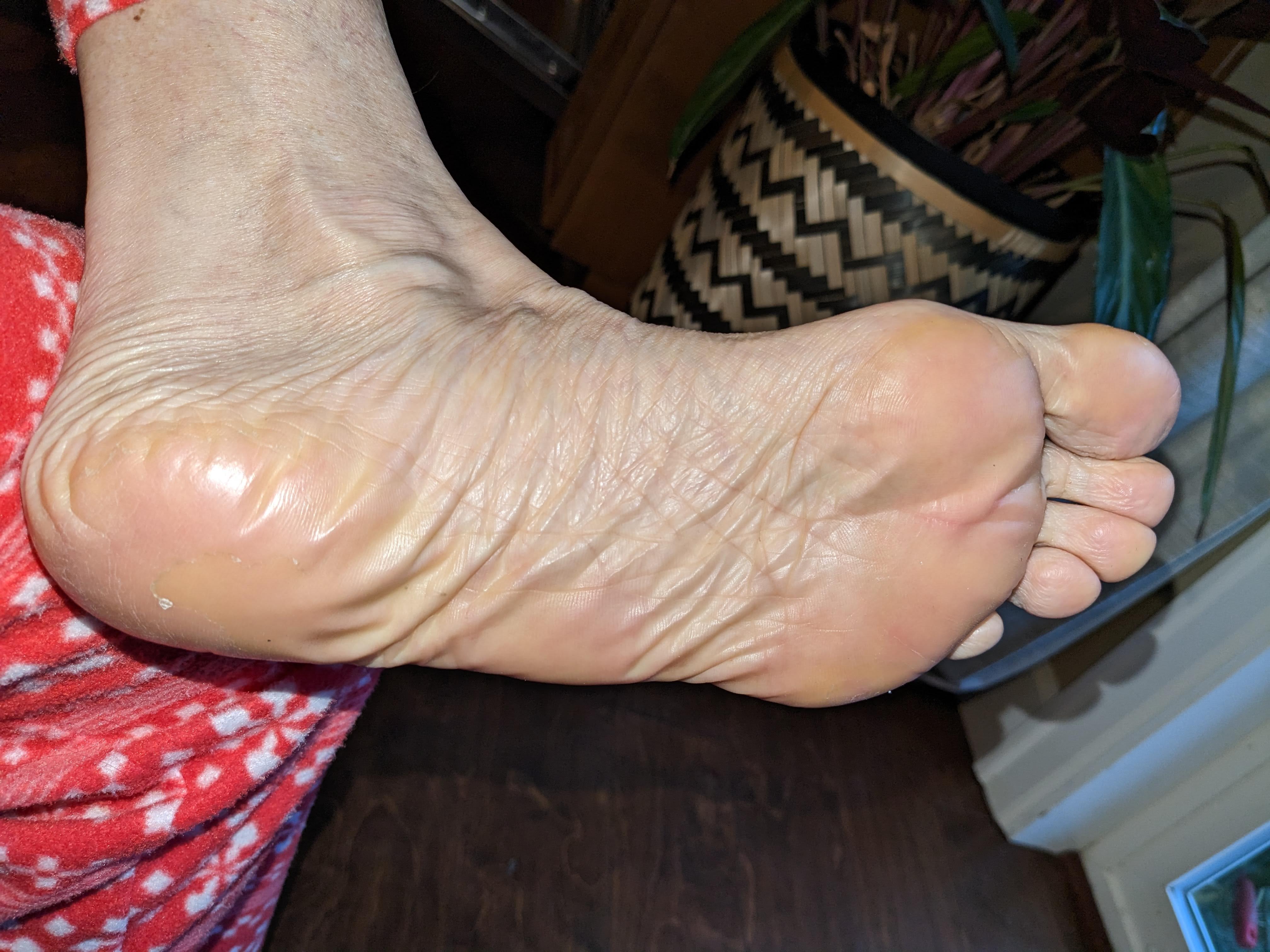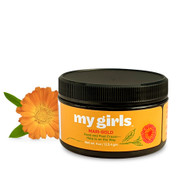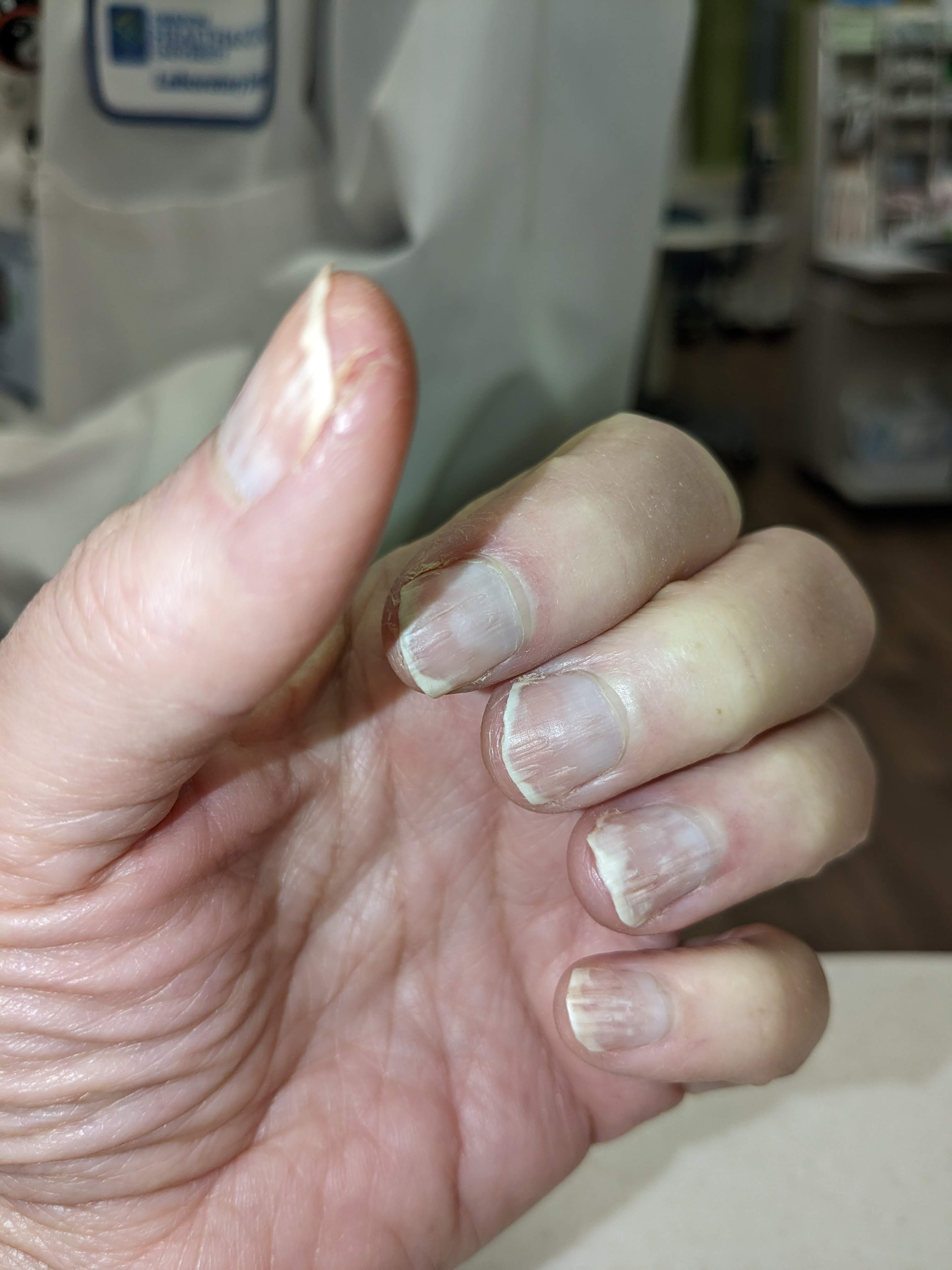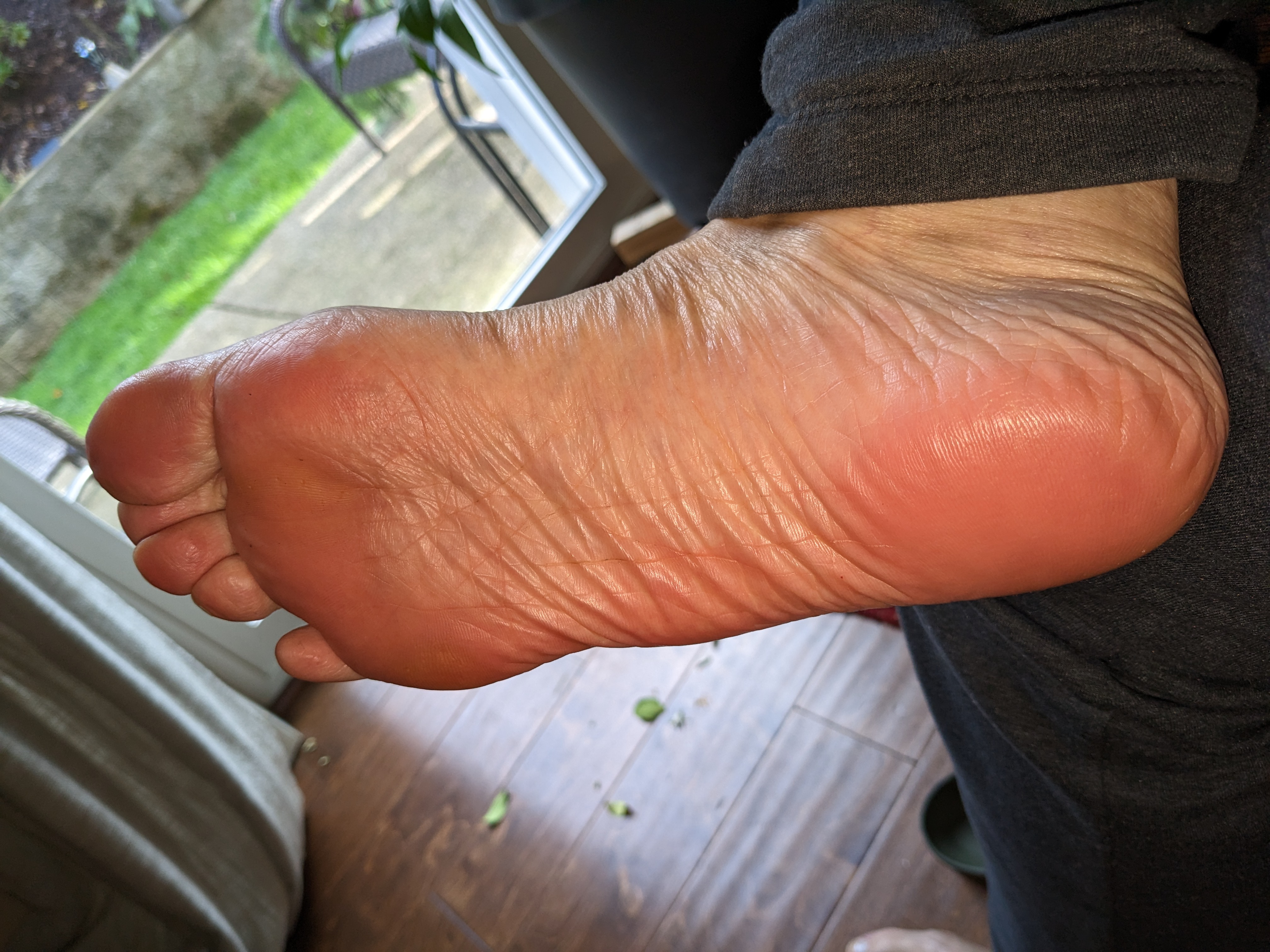Chemotherapy Skin Side Effects: 10 Helpful Tips for Managing Chemo Skin Side Effects
Posted by Theresa Keresztes on Jan 19th 2023
Top 10 Tips for Managing Chemotherapy Side Effects
A side effect of the chemotherapies listed below is known as hand foot syndrome (HFS) or Palmar-plantar Erthrodysesthesia. The sensation is an unfortunate burning/tingling feeling in your feet and hands that can cause a loss of dexterity and balance due to the discomfort. Skin can crack, split, bleed, peel, blister, appear shiny and bright red and basically make life a bit difficult when opening cans and bottles, cooking, washing dishes, folding laundry - basic daily life. This unfortunate side effect is a sign however, that the chemotherapy is doing its' job as the drug attacks fast moving cells and toxicity leaking from capillaries building up in the hands and feet, where capillaries are very dense. Learn more
People experiencing this side effect usually notice it within the first few weeks of treatment and should consult their Oncologist immediately for aids to comfort; for ex; soft and thick socks, shoes, skincare creams containing Urea and other measures to help maintain lifestyle.
Chemotherapy medications affecting the hands and feet
- Anthracycline antibiotics
- Cytarabine
- Docetaxel
- Capectabine (or 5-fluoroucil)
- Doxorubicin
Managing Symptoms during Chemo Cycles
Below are the tips that the My Girls' Team has found to be helpful in managing HFS to continue the activities you enjoy.
- Protect Your Hands and Feet: Wear gloves while doing household chores or handling hot objects. Consider using fake nails for special events and gently removing them before your next skin check with your oncologist.
- Use Gentle Cleansers: Avoid harsh soaps and cleansers while bathing and cleaning. Avoid solvents like mineral oil and turpentine as they can sting and irritate the skin.
- Epsom Salt Soak: Soak your hands and feet in a cool/cold water Epsom salt bath each evening for 10 minutes to remove bacteria and soften the skin before applying moisturizing barrier creams.
- Embrace Cold: If you live in a cooler climate, walk on cold floors without slippers in the morning. If you live in a warmer climate, enjoy cool tiles or stone floors. Cool sheets and open windows at night can also help.
- Apply Barrier Creams with Urea: Use a urea-rich moisturizing barrier cream twice daily to help heal and protect red, irritated hands and feet. Avoid rubbing hands and feet and wear loose fitting clothing and socks.
- Hydrate: Drink plenty of water throughout the day to keep your skin moisturized.
- Exercise: If high-impact activities are not possible during chemotherapy cycles, try low-impact activities like swimming, yoga, or cycling. When symptoms subside during off-cycles, consider light jogging or short walks.
- Buy Soft and Thick Socks: Use soft and thick socks and change them daily after applying skincare creams.
- Wear Comfortable Shoes: Opt for supportive and comfortable shoes like Hokas and OOFos brands, which come in various styles including sneakers, walking shoes, hiking boots, and flip flops. Consider slip-on or velcroed shoes to avoid pain from tying laces.
- Consult Your Oncologist: Alert your oncologist and nurse immediately if you experience skin side effects from chemotherapy. They can provide immediate help and may be able to adjust your treatment schedule to mitigate discomfort and maintain your daily activities.
Recommended Skincare Products
In the morning and evening, apply a Urea-rich thick moisturizing barrier cream such as MARI-GOLD Barrier cream for hands and feet to help heal and protect red, irritated hands and feet. Thanks to My Girls' skincare, feet remain uncracked and capable of walking and daily low-impact activities.
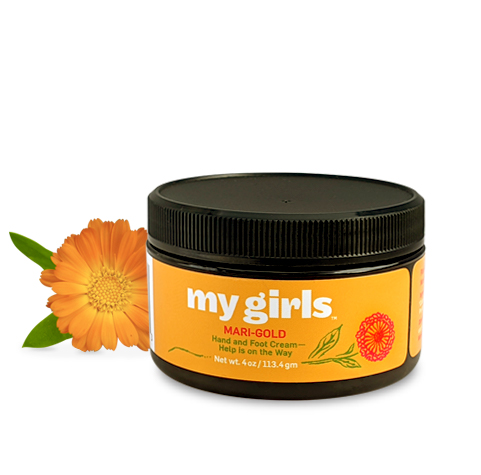
IMPORTANT: Remember to always consult with your healthcare team, including your oncologist and nurse, for personalized advice on managing chemotherapy side effects. They can provide you with the best recommendations based on your specific condition and treatment plan.
DIsclaimer: information provided is for educational purposes only and not intended as a substitute for medical treatment by a healthcare professional.
Week 4 - Start of Xelodo.
Week 16 - My Girls Barrier Cream applied twice daily.
